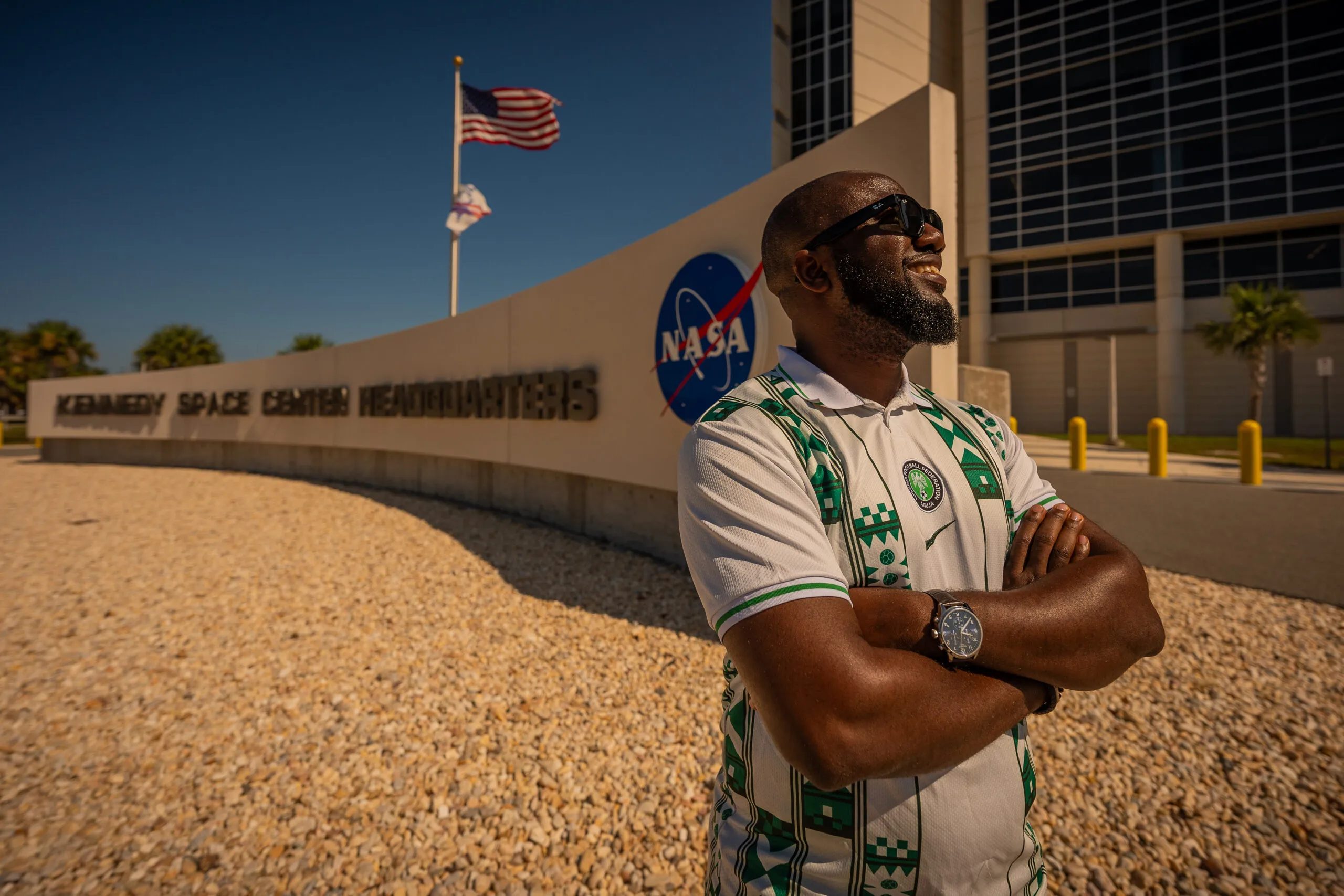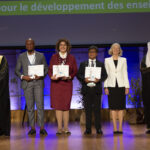Temidayo Oniosun stood still that morning, eyes fixated on a live feed from Cape Canaveral. The countdown echoed: “Three… two… one, liftoff.” Just like that, a rocket zipped into the sky, carrying a piece of Nigeria beyond Earth.
Onboard the NASA Crew-11 resupply mission were Egusi seeds—native seeds sourced from Oyo State but now headed for space on a groundbreaking mission.
For Oniosun, a graduate of the Federal University of Technology in Akure, this was deeply personal. Raised in a country gifted with intellectual potential but often left out of global scientific breakthroughs, this felt like a dream unfolding into reality.
The Egusi-in-space experiment, in partnership with Space in Africa, The Karman project and Jaguar space LLC, was designed to examine whether these indigenous seeds could survive and perhaps thrive in the extreme conditions of space. Could a plant from Nigeria feed astronauts on Mars someday? The thought itself was thrilling.
The experiment with egusi seeds didn’t begin with rockets. Egusi was selected for its hardiness and nutritional value. Now, under the supervision of Jonny Kim, U.S. Navy Lieutenant Commander and NASA astronaut, they are orbiting earth alongside cutting-edge technologies. The real story begins when the seeds return.
In Florida, Dr. Wagner Vendrame at the University of Florida will lead a team in examining the seeds for molecular changes, viability, and metabolic activity. They’ll test if the Egusi can still germinate, how it has evolved, and whether it’s ready to face the challenges of space farming.
This experiment is a loud, resounding declaration that African crops and African minds belong in the future. For years, people have viewed Africa as being behind the rest of the world, especially in science, technology and innovation, but this project flips that script.
Nigeria isn’t following; it’s leading.
Already, local institutions are rising to meet this moment. NASRDA and various Nigerian universities are investing in research around seed genetics, crop resilience, and smart agriculture.
Slowly but surely, the country is building a pipeline, not just for innovation but for international relevance. The Egusi seeds may be small but the message they carry is immense: our food, our knowledge, our future.
Back home, the buzz is growing. Students in STEM programmes are following Oniosun’s adventure with wide-eyed excitement. Young girls and boys, who once saw space exploration as something distant and foreign, are picturing their names on mission manifests.
The journey to space doesn’t have to begin in Houston or Tokyo. it can begin in Akure or Oyo or Kaduna. This mission has become a symbol of possibility. The seeds that left Nigerian soil are returning with more than data, they’re bringing back dreams, pride, and the bold reminder that Nigeria has a place in the stars.
Finally, as those Egusi seeds remain suspended between Earth and the infinite unknown, they tell a story that defies gravity. They tell of a people grounded in tradition, yet reaching for the future. They tell of a young man with a dream and a nation that dared to believe in it.
In a world often quick to dismiss African contributions to science, this mission plants a different kind of seed, one of global respect, scientific sovereignty and hope. The sky, it turns out, is no longer the limit.
Temidayo Oniosun witnessed a historic moment as Egusi seeds from Nigeria embarked on a NASA resupply mission to space. The initiative, partnered with Space in Africa, The Karman Project, and Jaguar Space LLC, aims to test if these indigenous seeds can survive and potentially thrive in space conditions. This experiment, under the supervision of NASA astronaut Jonny Kim, marks a significant step for Nigeria in global scientific exploration.
Upon the seeds’ return, Dr. Wagner Vendrame and his team at the University of Florida will assess the seeds for molecular changes and viability, potentially paving the way for future space farming. The project symbolizes Africa’s progress in science and technology, challenging historical perceptions of the continent being left behind.
Nigeria is now a leader in innovation, with institutions like NASRDA investing in research on seed genetics and smart agriculture. The mission has inspired Nigerian students in STEM fields, showcasing that space exploration is achievable beyond traditional powerhouses like Houston or Tokyo. This event represents a new era of global respect and scientific pursuit for Nigeria.






